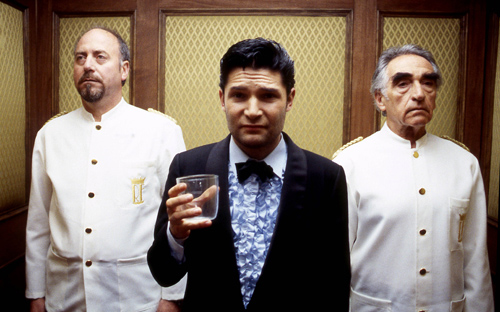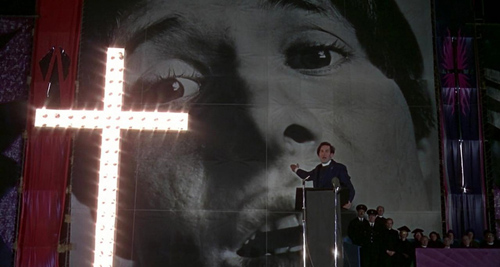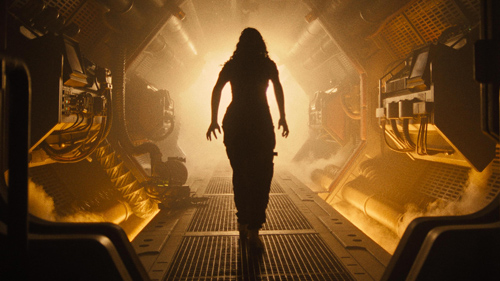
Although he has certainly given us many reasons not to, don’t let Corey Feldman keep you from celebrating The Birthday. The running time, too long by a quarter, might take care of that.
Resurrected from oblivion by Jordan Peele, this 20-year-old film went unreleased after earning good notices on the festival circuit. It’s positioned as “the most amazing 117 minutes in the life of Norman Forrester,” a New York pizzeria employee (Feldman) who resides on the social ladder’s lower rungs. Not so for his spoiled, snooty longtime girlfriend, Alison (Erica Prior, Second Name), who comes from money.
At a lavish birthday for her father (Jack Taylor, Pieces) at the grand hotel he owns, Norman is to meet Alison’s parents for the first time. Needless to say, he’s a nervous wreck. We’ve all been there, feeling like the fate of the world rests on our shoulders.
Except here, it does.

We know instantly that something about the night feels “off” for Norman, but it takes an hour to get to the why. Ironically, this first, more enigmatic half is close to terrific — as cartoony as it is menacing, bristling with the enough quirky energy as if retroactively campaigning to be the fifth segment of Four Rooms.
As the bombastic secrets spilled forth with hour 2, so goes the wind from these sails. Until the abrupt end, Norman’s extended nightmare starts to resemble a run on a treadmill, forever heading toward a destination without achieving an inch forward; that may be why the movie feels an act short of the standard three. The Birthday bears that first-film lack of discipline in wanting to throw everything into the mix in case another chance never comes. As unrestrained as Eugenio Mira’s hand is here, he had it figured out by his junior effort, the short, taut, high-concept hitman thriller Grand Piano.
And as for Feldman, his voice for Norman is a real choice, but he commits and delivers. It’s unfortunate The Birthday didn’t see release before now, because he’s given something the tabloid fixture hasn’t had since the days of Stand by Me: an honest-to-God role. —Rod Lott










